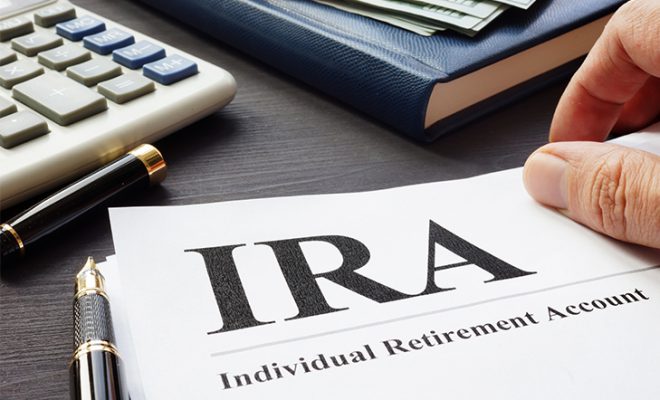8 Best Financial Gifts for Your Children
Whether it is the holiday season or a special occasion like a birthday, graduation, etc., gifts can be a great way to show appreciation, admiration, and love for your children. However, as parents, your responsibility towards your child goes beyond traditional gifts like toys, books, family vacations, a trip to the mall, or gadgets. As opposed to these, financial gifts can offer your children more advantages. They can use these funds or assets for their career or educational advancement. Financial gifts also bring in more economic security and stability that can help your children tide through some tough times.
As you spend your money on a gift, ensuring that your hard earned money brings in some value to your child’s life is important.
Here are 8 financial gifts that you can consider gifting your children.
1. Contributing to their college fund
Regardless of your child’s age, a contribution to their college fund or towards other higher education expenses can be instrumental in their success later. Instead of giving your kids some cash, you can contribute the same to a 529 education savings account or any other account that you are using to save for their future education costs. Not only will this ensure that your child uses the money for a good reason but the power of compounding will grow your contributions over time and increase its value. Moreover, this may eliminate the need for a student loan later in your child’s life. This way, they can start their career without the burden of having to pay back an education loan and use their income to invest or save further.
Contribution to a child’s college fund is also something that grandparents and relatives can resort to. If the child is already in college, you can cut a direct check to the university or make a donation to the college in the child’s name. In the case of grandparents, who may be retired, gifting can result in lower estate taxes too. Hence, not only does such a gift benefit the child but can also benefit the person giving the gift.
2. Opening a savings account
Another option that you can consider is opening a savings account for your child. This can be a bank savings account or even a certificate of deposit. The money will be safe in the account and you will be able to monitor how your child uses the funds. In the case of parents who may be worried that their children can misuse their funds, a savings account can be a good solution. Moreover, the money accumulates returns over time which in turn, can help your child with their expenses. Savings accounts can also be a learning experience for your children, as they get to acquire and imbibe the principle of systematic savings. This can benefit them for life as they will likely follow the same practice even when they are older. Moreover, the savings can be used for a number of expenses, such as education, learning a new skill or hobby, travelling abroad, etc.
3. Invest in their name
When it comes to investing, there is a wide range of options that you can choose from. Buying stocks can be one way to go. There are no limitations on the number of stocks you can buy and you can keep investing as and when time permits. Stocks can come with high risks involved, so make sure to discuss your options with a financial advisor. However, small investments made on behalf of a child would not have the same impact on your risk tolerance. You can also invest in government, corporate, or municipal bonds if you want lower risk with steady returns. Mutual funds, exchange traded funds, etc., are all viable options here.
If you plan on using your Individual Retirement Account (IRA) for your child’s higher education expenses, you can make a contribution to your IRA too. However, this has to be within the yearly limit of your IRA. In 2021, the limit is fixed at $6000 for investors below the age of 50 and $7000 for investors aged 50 or more. But this is only suitable for parents who plan to use their IRA for their children’s education costs. Otherwise, the funds may be stuck in the account and be used for qualified expenses only and may not always benefit your child. If your child is working and earning an income, you can open an IRA in their name as well. But your child will not be able to withdraw these funds till the age of 59.5.
4. Buy a life insurance plan
A life insurance plan can offer your child financial protection in your absence. It can cater to their needs and allow them to carry on with the same standard of living as before. You can consider purchasing a life insurance plan and naming the child as the nominee. In the unfortunate event of your death, the benefits from the plan can help them cover their education expenses, food and utility costs, start a business, or even pay back loans. This is especially important in the case of single parents as their children do not have another parent to depend on.
5. Purchase some real estate
This may not suit all parents as the costs involved can be high. However, if your budget permits, purchasing real estate can be beneficial for your child in the long run. The costs of real estate can appreciate substantially. Moreover, your child can enjoy flexibility over how they wish to use this investment. They can keep the property for themselves. They can also use it as collateral for a loan or sell it in the future to gain a profit and use the money to cover their expenses, such as loan settlements, education expenses, etc. In addition to this, real estate fits well into the category of family assets, in the sense that it can be carried forward to future generations too. Moreover, it takes the burden off your child as they will have a real estate asset with them and can use it when the time comes to buy their own house.
6. Donate to charitable organizations
You can get a gift certificate for a charitable organization that your child likes. The money can be donated in your child’s name and can go towards a cause that is close to your child’s heart. You can give your child a gift certificate for a charity on every birthday or any special holiday. This can be another learning opportunity for your child. They can learn the significance of moral and ethical gestures and understand the importance of sharing with the less fortunate. Donations can also offer tax breaks and be used as an effective tax saving strategy.
7. Give cash
Although this can be tricky sometimes, cash too, can make for a great gift. It can seem impersonal to some, but gifting your child cash gives them the chances to use it as they please. They can use the money to buy what they like or save for a bigger goal in their future. However, this may not be a good choice if your child is likely to misuse the money. Even if you trust your child to use it for something meaningful, it may help to be more involved in your child’s decision and help them understand the different ways in which they can spend their gift. You can consider giving them money in installments to make sure they do not spend it in one place. You can also make an agreement with them to spend a part of the money and save the rest for future expenses. This can again be a chance for you to teach them money management skills that they can use and incorporate in their lives in the future. Little children can be gifted a coin collector or piggy bank where they can save a portion of their money. Older children, on the other hand, can use a bank account as stated above and continue their savings there.
8. Establish a trust fund
You can set up a trust fund for your children that they can access when they are adults. This eliminates the chances of money mismanagement as your child gets the fund when they are more mature to handle the money. However, you may require a trustee to manage the funds till your child is old enough to take over the trust fund. There are different types of trust funds, and a financial advisor can help you decide the best as per your requirements.
To sum it up
Gifts can mean different things to different people. However, as parents, you can choose suitable gifts to teach your children the principles of financial planning from a young age. Systematic savings, frugal living, spending mindfully, etc., are some things that children can pick up as they grow up. While talking to your kids may not have the same impact always, small gestures like conscious gifts can leave a lasting impression on them and help them plan their own finances and life better.
If you need more help in picking a financial gift for your children, you can use our free tool to find a qualified financial advisor that meets your needs to help you make the right choice.














